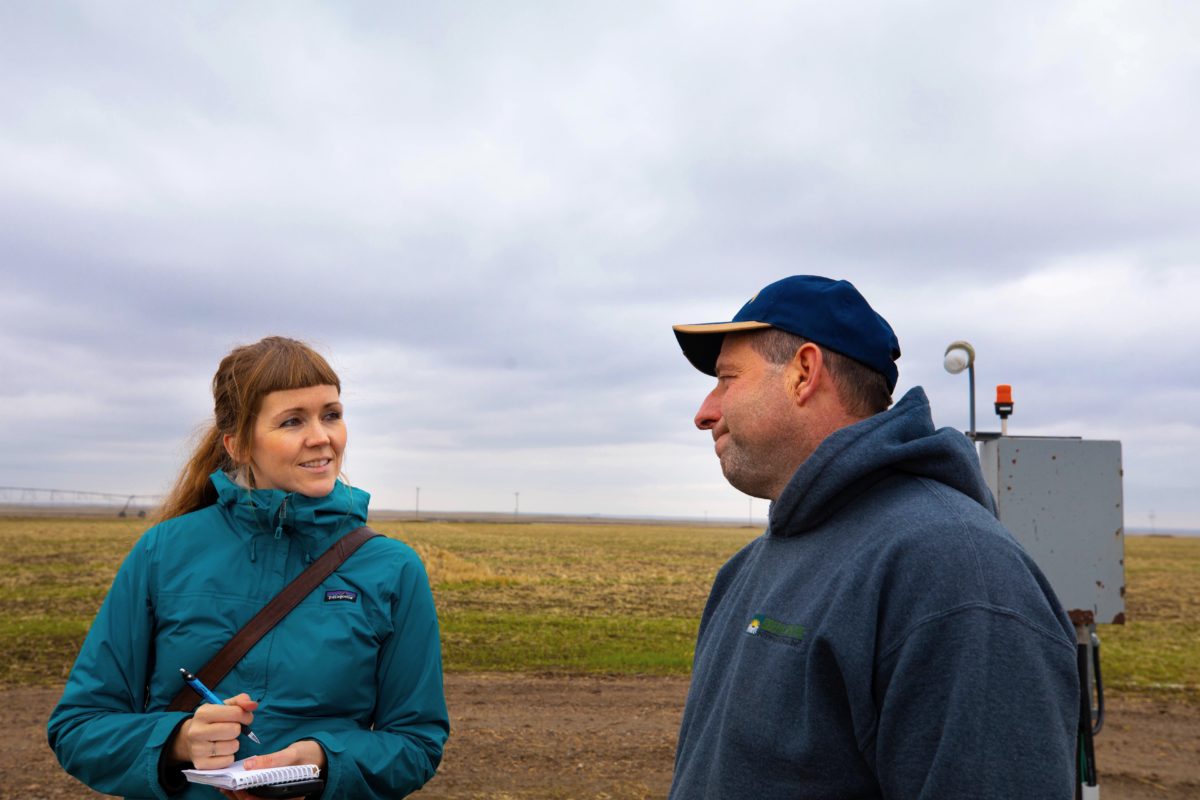
Rocky Mountain coal mine in Alberta takes next step to expansion
In Alberta, a massive open-pit coal mine near Jasper National Park is hoping to expand...
The Narwhal has earned three nods from The Canadian Association of Journalists for its in-depth reporting and photojournalism.
Launched less than a year ago, The Narwhal’s team of investigative journalists dives deep to tell stories about Canada’s natural environment. The Narwhal is ad-free, not-for-profit and has just four full-time employees. More than 1,200 people donated to support The Narwhal’s journalism in the past year.
The Narwhal’s Alberta reporter, Sharon J. Riley — hired thanks to the support of our monthly members – was named as a finalist in the labour reporting category for her feature, Life after coal, showcasing coal miners in Wabamun, Alta., as they grapple with the imminent reality of being out of work.
“It is such a privilege to have the opportunity to interview Albertans from all walks of life,” Riley said. “The day I spent with coal miners last fall will always stick with me. I’m incredibly honoured that they shared their stories with me and that the Canadian Association of Journalists has chosen to recognize this work.”
Riley travelled to Wabamun with Edmonton-based freelance photographer Amber Bracken and spent an hour or more in one-on-one conversations with each coal miner at their union hall, where she heard a wide variety of opinions on the government’s transition programs, as well as on the reasons for the coal power phase-out itself. The story seeks to convey the complexity of the perspectives of resource workers in the fossil fuel industry.
Other finalists in the labour category include CBC News, CBC Radio, Briarpatch and HuffPost Canada.

The Narwhal’s Alberta reporter, Sharon J. Riley, interviewing a farmer about oil and gas wells near his property. Photo: Theresa Tayler / The Narwhal
The Narwhal also earned two nods in the photojournalism category.
Pat Kane’s photo essay on Indigenous-led conservation in the Northwest Territories showcases how Indigenous people are reconnecting with their ancestral homelands. Kane is based in Yellowknife and covers people, life and culture in Canada’s North.
His photo essay shone a spotlight on Indigenous Guardians programs
, which are increasingly being recognized as an important conservation tool that can also help advance reconciliation.
“Programs like these help Indigenous communities become stewards of their ancestral lands, as land/water monitors, park rangers and environmental advisors in addition to building capacity for community-led initiatives,” Kane wrote in his photo essay.
“People are getting back to the land as a way to create jobs, bridge the gap between elders and youth and cope with intergenerational trauma wrought by residential schools and other manifestations of colonialism.”
Kane’s work has been featured in Canadian Geographic, The Globe and Mail, Toronto Star, CBC and more. He is a member of the Timiskaming First Nation in Ontario/Quebec.
Aaron Vincent Elkaim was also named a finalist in the photojournalism category for his photo essay on the Fort McKay First Nation’s fight to protect Moose Lake from rampant industrial development.
“Surrounded on three sides by oilsands operations, the Fort McKay First Nation has benefited tremendously from industrial development — while also experiencing firsthand its environmental consequences,” Elkaim wrote.
“While the nation has historically supported nearby operations, when Prosper Petroleum proposed a 10,000 barrel per day oilsands project near Moose Lake, an area of sacred cultural value for the people of Fort McKay, the community reached a tipping point.”
Elkaim’s work has been published in The New Yorker, The New York Times, National Geographic, TIME, Telegraph Magazine, The Canadian Press and The Globe and Mail.
Other finalists in the photojournalism category include Jonathan Hayward of The Canadian Press and Larry Wong of the Postmedia Network.
As a non-profit magazine, our goal at The Narwhal isn’t to sell advertising or to please corporate bigwigs — it’s to produce award-winning journalism for all Canadians.
In November, The Narwhal won four Canadian Online Publishing Awards, including silvers for best news website and best publication and gold and silver for best photojournalism.
The Narwhal’s 583 monthly members are the lifeblood of our newsroom, providing reliable support for our factual, honest reporting. Not a member yet? Please consider becoming a monthly member of The Narwhal today. Every dollar we receive from readers like you goes straight to funding independent journalism.
Get the inside scoop on The Narwhal’s environment and climate reporting by signing up for our free newsletter. A $335 million funding commitment to fund...
Continue reading
In Alberta, a massive open-pit coal mine near Jasper National Park is hoping to expand...

A trade war could help remake B.C.’s food system, but will family farmers be left...

First Nations are leading efforts to make sure lake sturgeon can find a home in...
